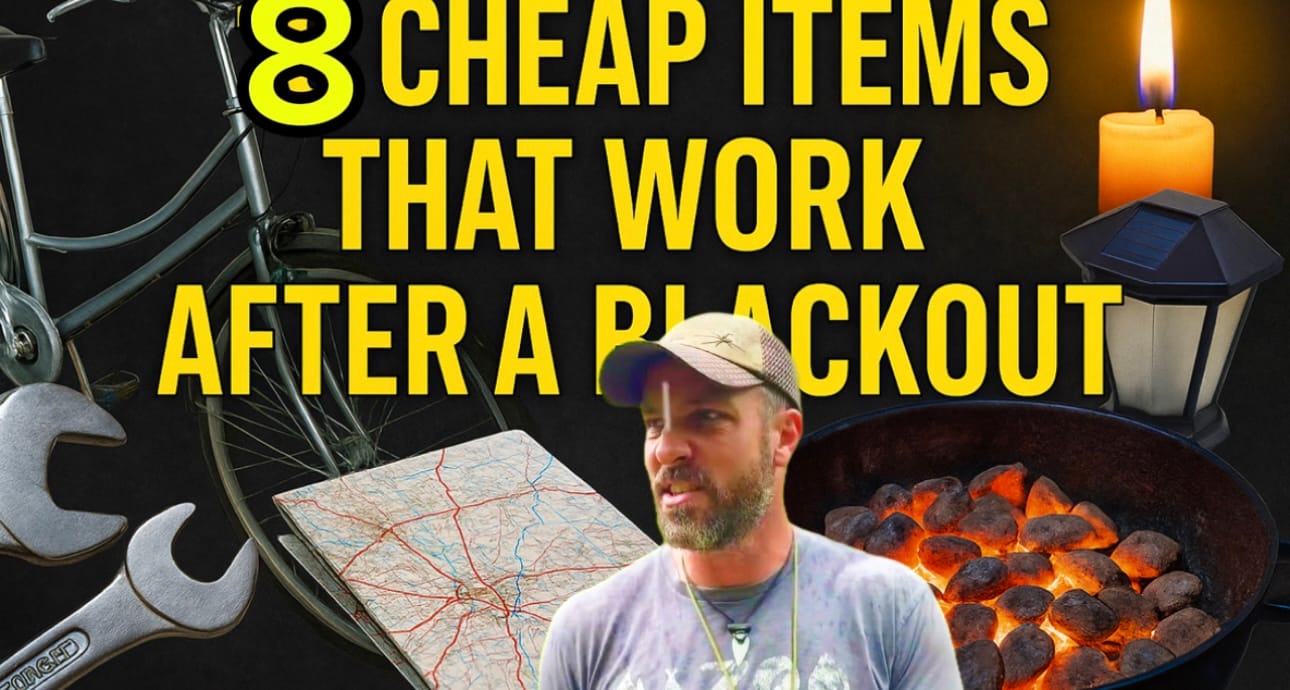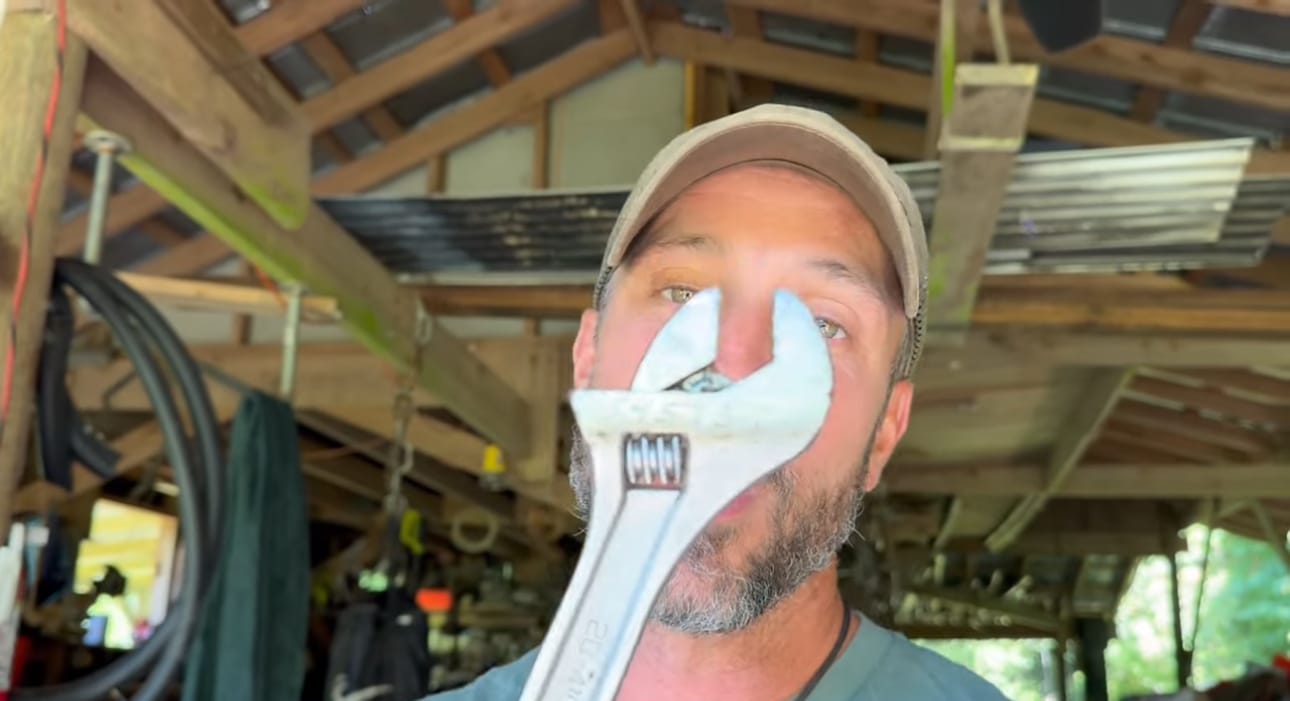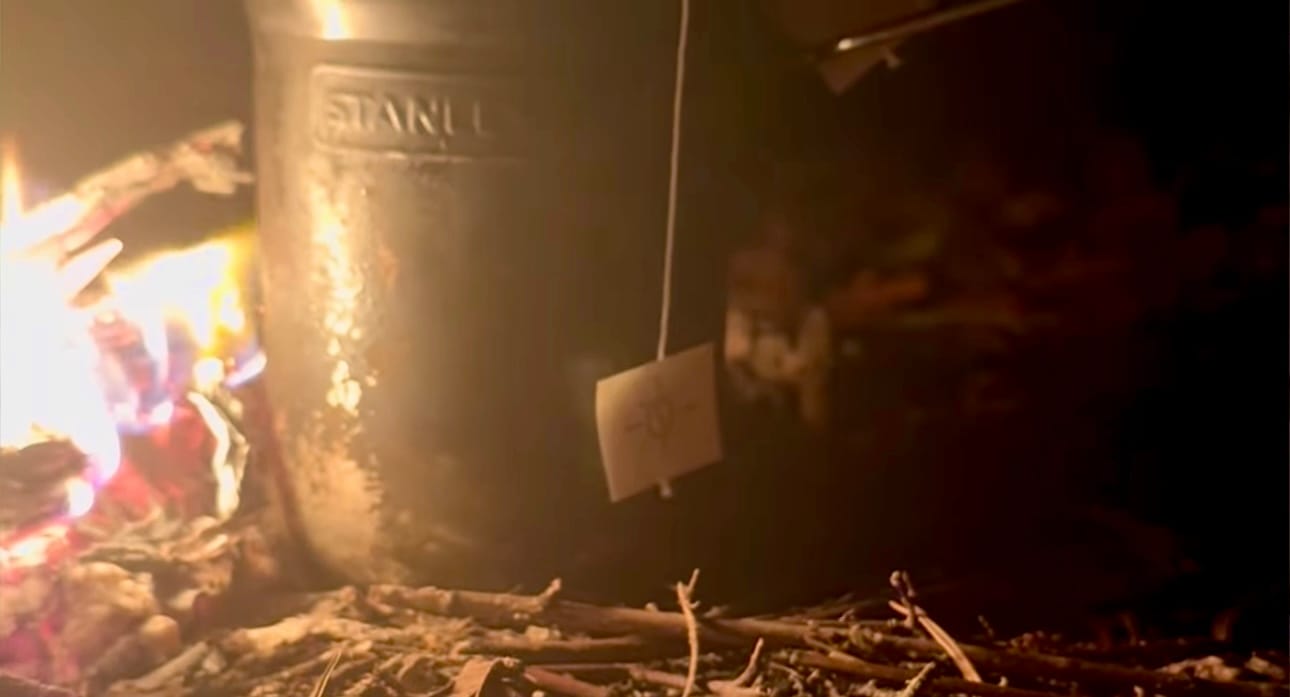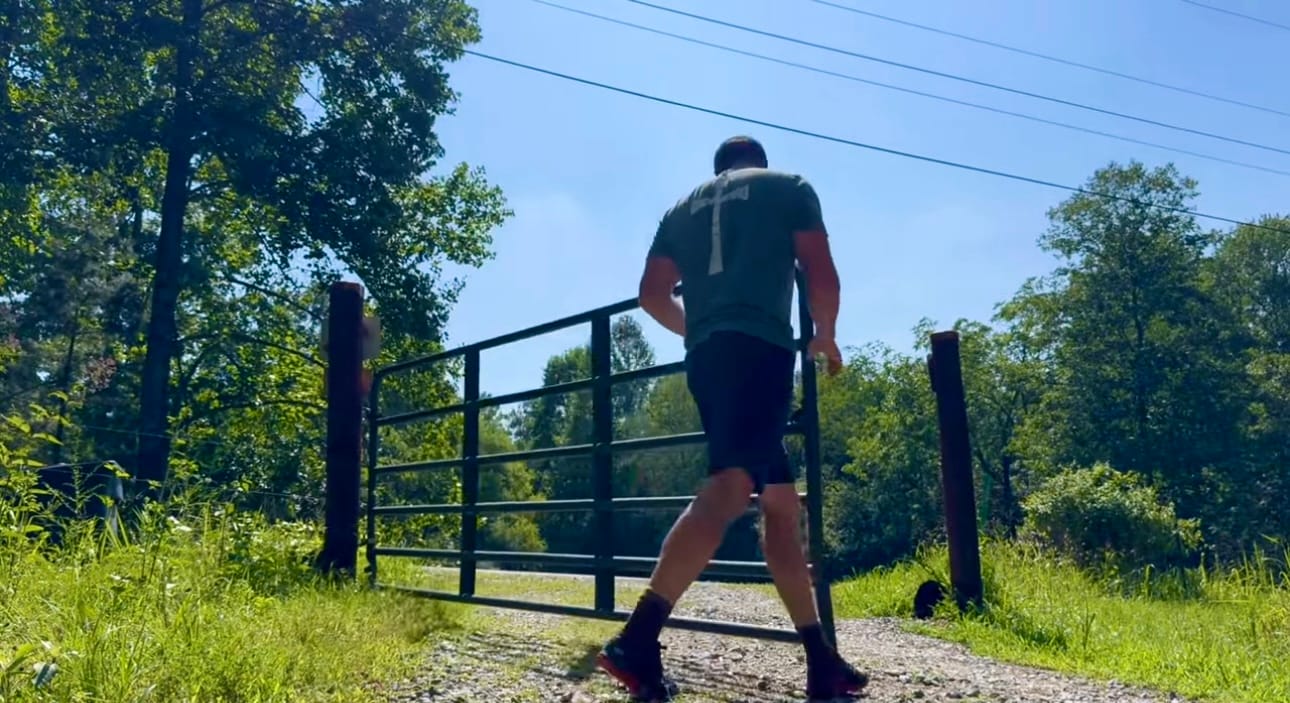
Friends, welcome back. I am Jason and we're discussing when the grid goes down, when the EMP strikes and it all goes black. There's a few items that you can still count on no matter what.
After 30 years messing around in the outdoors and doing some contract work with Navy Special Warfare folks, I've learned something pretty straightforward: when everything goes sideways and the lights go out for good, the stuff that keeps working isn't usually the high-tech gear we get excited about.
Today I want to walk you through eight simple tools that'll still be working when your smartphone becomes about as useful as a paperweight.
You wake up tomorrow morning and flip the light switch. Nothing. Check your phone. Dead. Try to start your truck. Click, click, nothing. Your fancy tactical flashlight? Dark as midnight. Welcome to the post-EMP world, where your $2,000 night vision goggles are about as useful as a screen door on a submarine.
But here's the thing that separates real preppers from the keyboard commandos, there are tools that have been keeping humans alive for centuries, and they'll still work when every circuit board in America is fried. Let me walk you through each one, starting with the most overlooked category in modern prepping.
Here's a test for you. I'm holding up a tool right now. Can you name it? If you don't know what this is, you've already failed the first lesson in EMP survival, and that's not your fault. We've gotten so dependent on power tools that most people couldn't fix a fence post if their life depended on it.
The Reality Check: When the grid goes down, your cordless drill becomes a paperweight. Your impact driver? Useless. But a good old fashioned hammer, hand saw, wrenches, and socket set? They'll work the same in 2025 as they did in 1925.
I love my drill. I love my impact driver and all of that. I like my tools that make my life more convenient and easy. However, if the big EMP should come bearing down upon us and everything goes black, those types of tools potentially will no longer work and we'll be having to go back to resort to more primitive means of fixing things.
Now, along with that, we have to mention knowing how to use it. So, for example, here's a test. What is this? What is that called? In the comment section, if you don't know what this is, you failed the test and that means that you probably don't know how to use these types of tools. And it's not your fault, it's okay, it's not too late. There's no shame here, we're all friends. You just need to ask somebody and learn how to use things like that.

I'm no expert, there's so many things that I don't know how to do. And when something like that pops up and I'm ignorant to the use of a tool or something, I could reach out to a buddy. I could reach out to someone in my community. And chances are, generally speaking, if someone's really, really good at something, like let's say a welder, and you reach out to them and you ask them questions about it, they're almost always so eager to share their knowledge and their skills because they're passionate about it.
Subscribe to my YouTube channel for detailed hand tool reviews and tutorials that actually work in the field. ~ https://youtu.be/8rpGWPo1X7E?si=SW6zaGnXaRwz8GYE
Most skilled tradesmen are passionate about their craft. Reach out to that welder in your community, ask questions. Nine times out of ten, they're eager to share their knowledge because they love what they do. Don't let pride stop you from learning these essential skills. Barter offer something valuable in exchange for his or her help.
What You Need:
Are you starting to see the pattern here? When modern technology fails, we go back to the methods that built this country.
Walking sucks. Let me be brutally honest about that. It's slow, exhausting, and in this Georgia heat and humidity, it's downright miserable. Where I live, it's hilly and steep, making foot travel even worse.
But this beat-up old bicycle sitting here, my trusty Beatrice, she's 84 years old and still chugging along. This single-speed piece of history is at least three times more efficient than walking, and that's a conservative estimate. With a better bike, something with gears, you could amplify that efficiency even more.
The Transportation Crisis: When the EMP hits, your truck won't start. Your electric bike's battery is dead and can't be recharged. Even if you had a working vehicle, where would you get fuel? Gas pumps run on electricity. Refineries need power. The entire fuel distribution system grinds to a halt.
Having an analog means of transportation isn't just helpful, it's survival critical. And if you really want to go old school, get yourself a horse. But that's a whole different level of commitment and skill.
Bicycle Survival Tips:
Which brings me to the next critical item that most people completely overlook...
I use GPS all the time. Got Gaia GPS on my phone, use Google Earth, just like everybody else. But there's going to come a time when that's no longer an option. Do you know your way around without that digital crutch?
The Navigation Challenge: A lor of people under 40 have never used a paper map. I'm serious about this. They can't read topographic lines, don't understand scale, and couldn't plot a route to save their lives. Literally.
I keep a paper map right here in my vehicle, and I've got road atlases covering the whole United States. What are those called again? Help me out in the comments, you know, the ones you used to buy at Walmart. My brain's drawing a blank on the name, but you get the idea.
Learning to read a paper map isn't rocket science, but it takes practice. You need to understand how to orient yourself, read elevation lines, and plot efficient routes. Will it be as fast as your GPS giving you the quickest route? No. But it's infinitely more reliable than a dead phone.
Essential Navigation Gear:
The old analog methods aren't always the most efficient, but they're definitely more reliable. Speaking of reliability...
How are you going to cook your meals when the power goes out? If you're on city gas, that supply is likely controlled electronically and will eventually stop flowing. Even if you have your own propane tank, what happens when it runs out?
The old standby, the reliable backup, is a simple charcoal grill. But here's where most people stop thinking. You don't even need charcoal. I can start a fire right in this grill using hardwood, let it burn down to a nice bed of hot coals, and cook just like our ancestors did.
The Cooking Reality: Do you have firewood? Can you collect it? More importantly, do you have the tools to cut, split, and process firewood? These are the questions that separate real preparedness from fantasy prepping.
Out here in Georgia, I'm surrounded by oaks and other hardwoods. With the right tools and knowledge, I've got an unlimited fuel supply for cooking. But it requires hand tools, physical strength, and the knowledge of how to safely manage fire.
Fire Cooking Essentials:
But what good is a fire if you can't light it reliably?

I like solar panels and rechargeable batteries as much as the next prepper. This solar lantern here has been sitting in the back of my truck, staying charged automatically. But after an EMP, electronics might not work anymore, period.
When the sun goes down and you have no electrical lighting, life stops just like it used to. Our entire rhythm of life has been changed by electricity. We stay up late, work after dark, live completely different lives than our great-grandparents.
The Illumination Challenge: Think about it. Lights go out, batteries are dead, and you have no way to see in the dark. Your life would literally revolve around sunrise and sunset again. For short-term survival, you want ways to extend your useful hours.
Candles, oil lanterns, even simple kerosene lamps can provide that crucial light. But you need ways to light them. If you've only got one lighter floating around in your couch cushions, you're not prepared.
Lighting and Fire Gear:
But light isn't your only concern when society breaks down...
Check out my Substack community where we discuss different survival scenarios. https://on3ready.substack.com/
Your motion-sensing lights won't work. Your security cameras are dead. Your electronic door locks are useless. Time to go back to the fundamentals of perimeter security.
Look at this gate behind me. Sure, I could ram my truck through it if I wanted to cause some damage, or hop the fence if I was determined. But it's a deterrent. Most lazy bad guys will see this barrier and move on to an easier target. We never want to be the easy target.
The Security Mindset: Physical barriers force people to make deliberate decisions. They have to get out of their vehicle, damage their own property to ram through, or spend time and effort to bypass. Most opportunistic criminals will look for easier pickings.
And then there's Maggie, my four-legged security system. She's sitting right here in the front seat of my truck like she owns the place. Maggie's going to bark and make noise, and that's a deterrent. She's bitten quite a few people over the years, actually. She's known for her biting.
Will she kill an intruder? Probably not, but she'll slow them down, alert me to trouble, and make any would-be burglar think twice about sticking around. Best part? Maggie works even when the grid is down.
Physical Security Essentials:
But all the security in the world won't help if you can't access the most critical resource for survival...
I'm standing on top of my well right now. It's about 300 feet deep, and normally we use an electric pump to bring water into the house for drinking, cooking, showers, and flushing toilets. When the power goes out, that's no longer an option.
Fortunately, we installed a hand pump that allows us to pull water manually and fill our pressure tank. As long as there's water in that tank, we can still flush toilets, wash dishes, and take cold showers. Then we refill it by hand. It's brilliant, but not everyone has a well.
The 72-Hour Reality: Water stops flowing to your house. Day one, you're okay, got some bottles in the pantry. Day two, you're getting concerned. Day three, you're in serious trouble. How much water can you possibly store? Where's your renewable source?
If you live in the city on municipal water, and that water stops flowing, you need a solution. Fast. Water storage is difficult, especially in apartments, because water is heavy. Eight pounds per gallon adds up quick.
Water Solutions:
Which brings me to something most preppers completely ignore...
Let's take a trip back to 1990. Not that long ago, really, but a different world. You had a question about something, wanted to learn a new skill. What did you do? You couldn't Google it. ChatGPT didn't exist. You had to pull from your own library or visit the public library and ask the librarian for help.
I think it's crucial for us to have our own collection of books covering a broad spectrum of subjects. We can't keep everything up here in our heads. I wish I had a photographic memory and could be a walking encyclopedia, but I don't. Maybe you've got that gift, but most of us need external references.
The Knowledge Crisis: When the internet goes dark, how do you learn to fix that part on your truck? How do you treat an infection? What's edible in your local area? Books don't need batteries or internet connections.
But even more important than books is community. Having a network of people with different skills makes you much, much stronger. That welder who knows the trick to reach that impossible bolt. The nurse who can treat injuries. The farmer who understands soil and crops.
Building Your Knowledge Base:
Here's what separates the survivors from the victims: attitude. When everything goes wrong, when the lights go out and stay out, when your comfortable modern life disappears overnight, what's your response?
"What's the worst that can happen? Let's go On3. No excuses."
That's not just a catchphrase, it's a survival philosophy. Faith, fitness, and fortitude. Making yourself harder to kill in body, mind, and spirit. The people who survive aren't necessarily the ones with the most gear, they're the ones who adapt, improvise, and keep moving forward.

I want to know what other tools we can count on when the grid goes down. What am I missing from this list? Drop your thoughts in the comments below.
If this reality check hit home, hit that thumbs up button and subscribe to the channel. Better yet, share this with someone who needs to hear it. The prepping community is full of fantasy scenarios and mall ninja gear. Let's spread some real-world preparedness instead.
Ready to Level Up Your Preparedness?
Subscribe to my weekly newsletter at https://on3ready.substack.com/p/youtube for early threat warnings and no-nonsense survival advice delivered straight to your inbox. No fluff, no fantasy, just practical information you can use.
Join the conversation on my YouTube channel at https://www.youtube.com/@ONThree/videos for detailed gear reviews and real-world testing. Support the mission on Patreon at https://patreon.com/OnThree to help keep this content coming and get access to the private community where we dive deeper into these topics.
Check Out My Recommended Gear & Supplies
Explore the gear and supplies I personally use and trust. When you purchase through my Amazon storefront and other affiliates, I earn a small commission at no extra cost to you. These small commissions help support the creation of informative, free content for you to enjoy.
Essential Links:
Want more no-nonsense survival and prepper advice?
Bottom Line: The prepping and survival community is filled with fantasies. Let's spread some reality instead. Share this newsletter with someone who needs to hear it. When the EMP comes, the survivors won't be the ones with the fanciest gear, they'll be the ones who mastered the basics that have kept humans alive for thousands of years.
Until next time, friends, what's the worst that could happen? Let's go On3.

